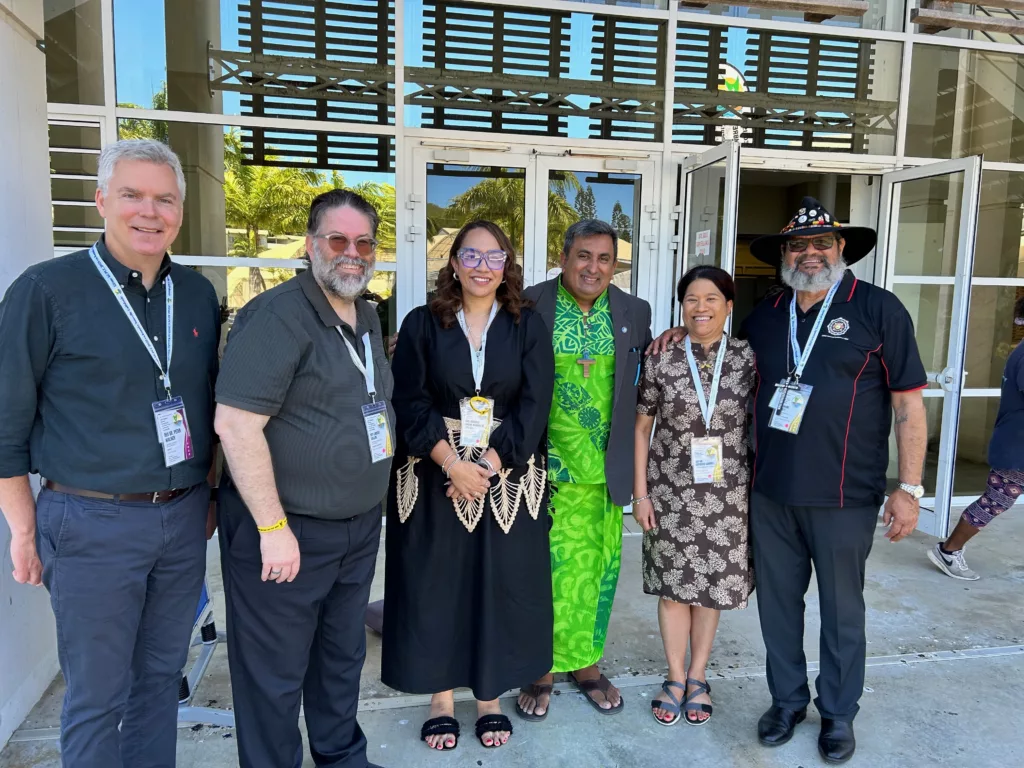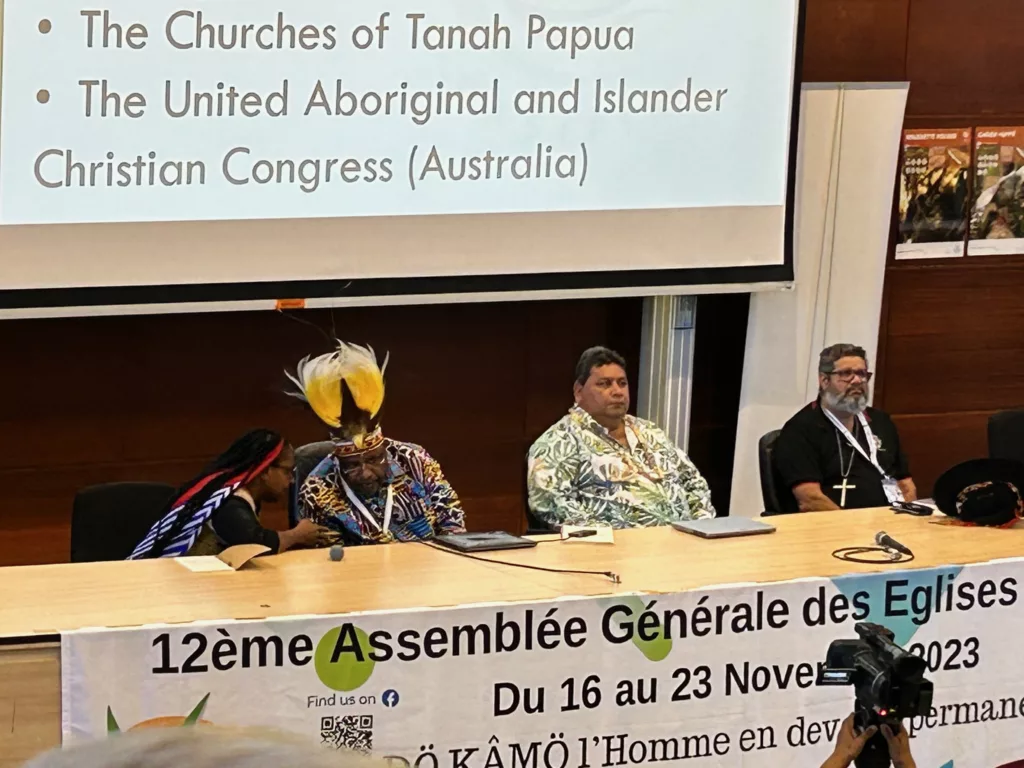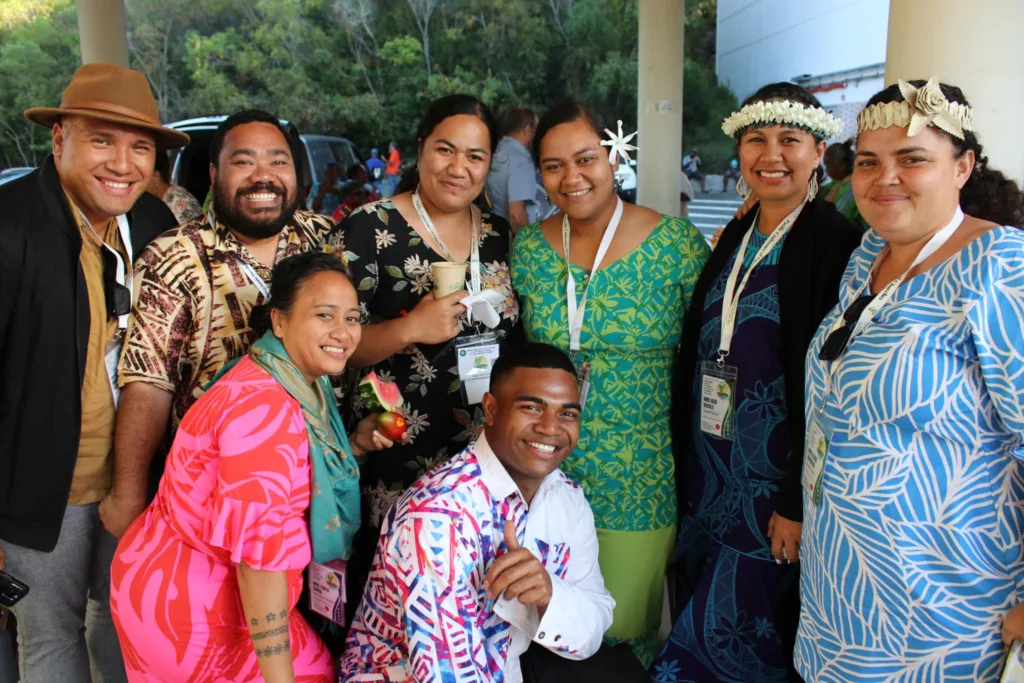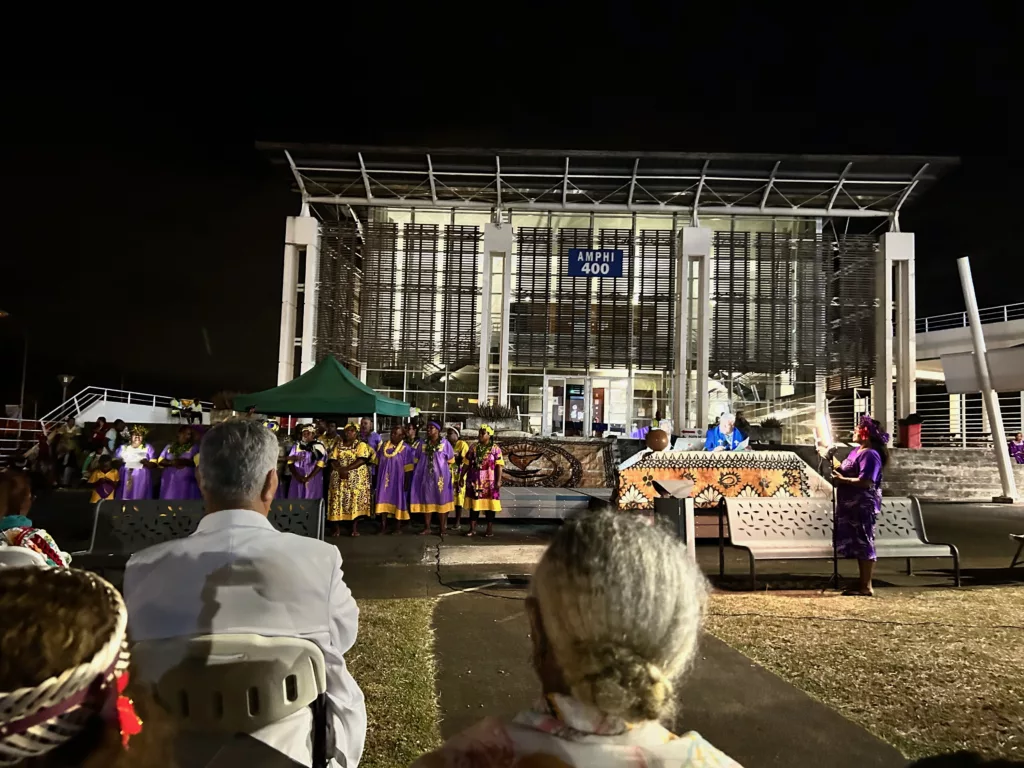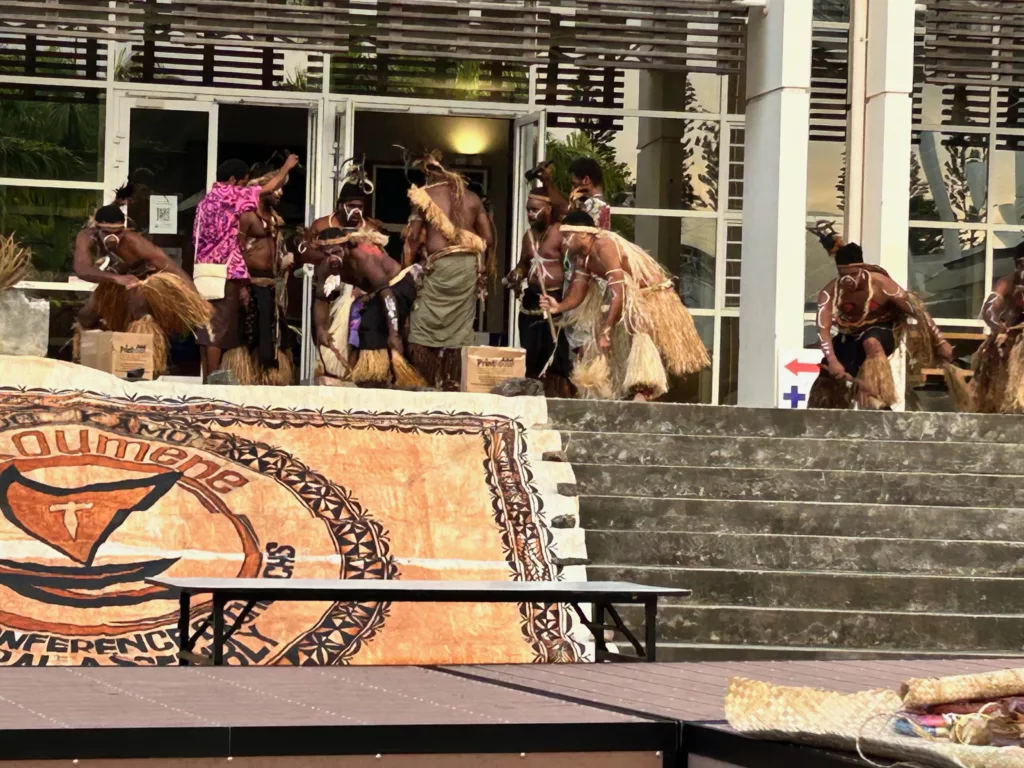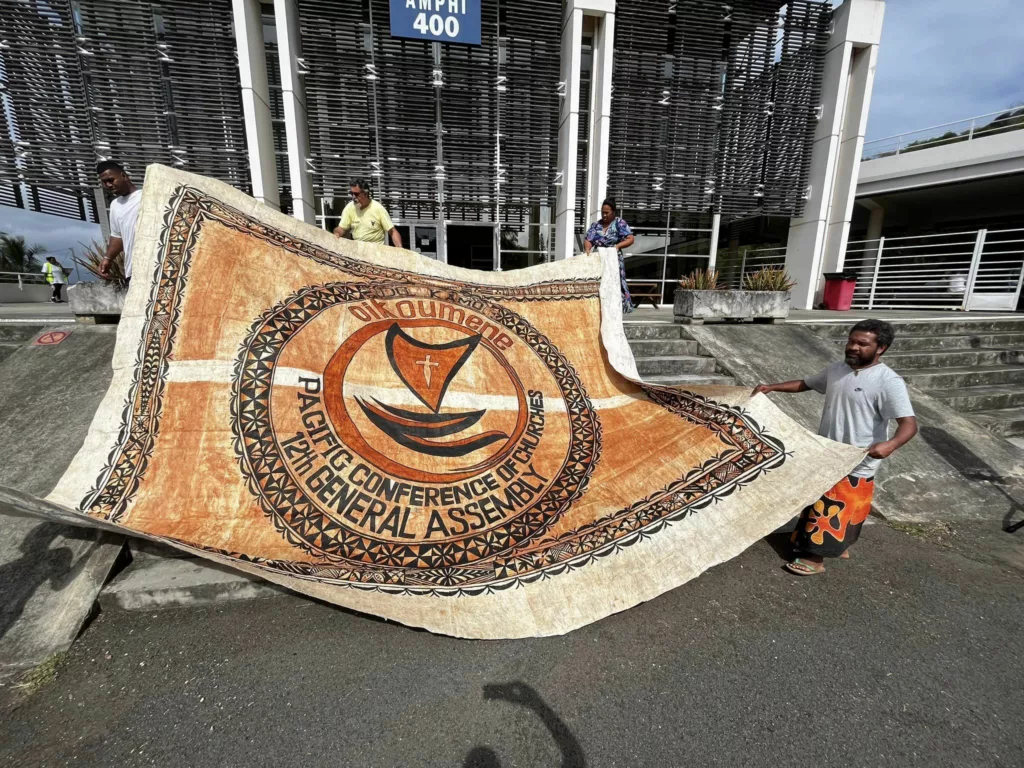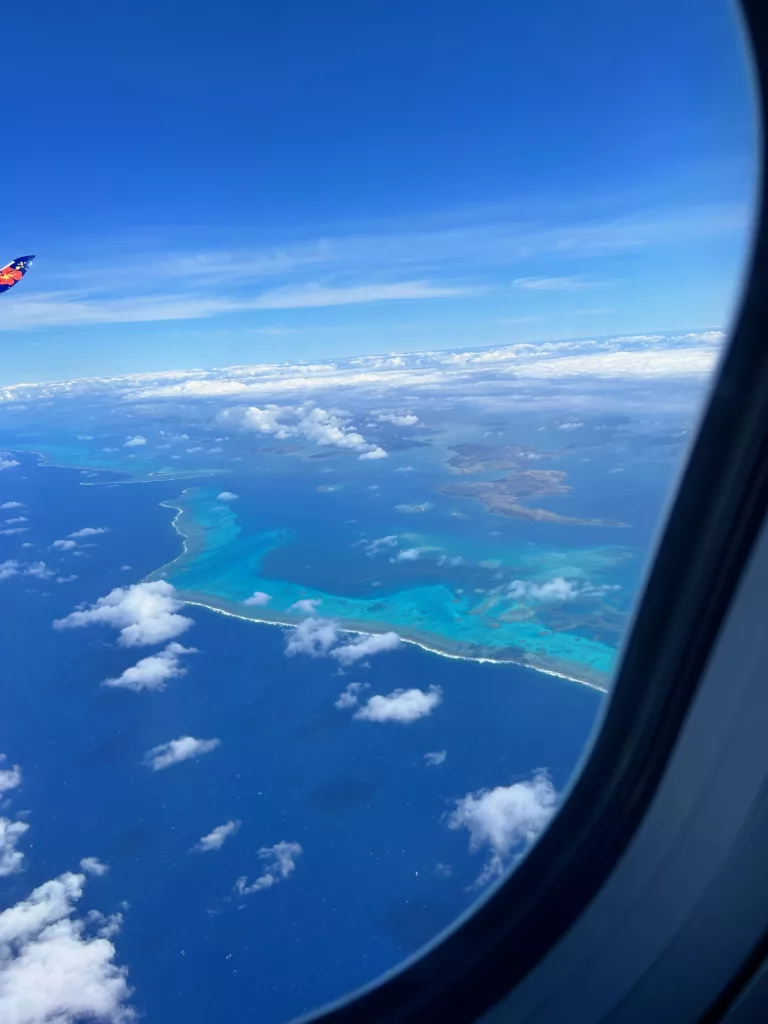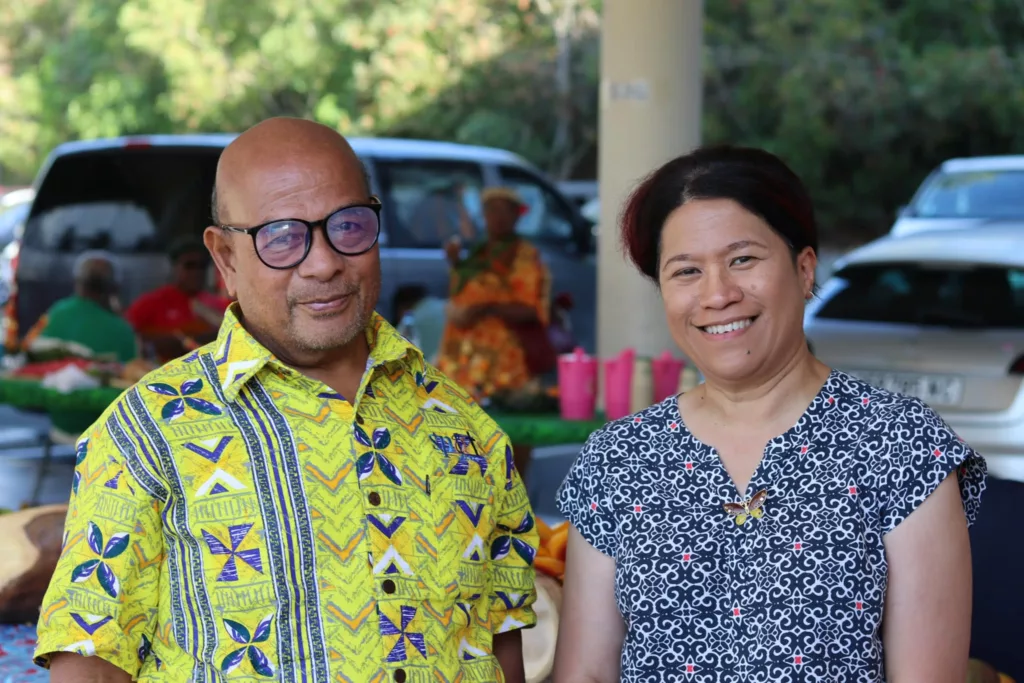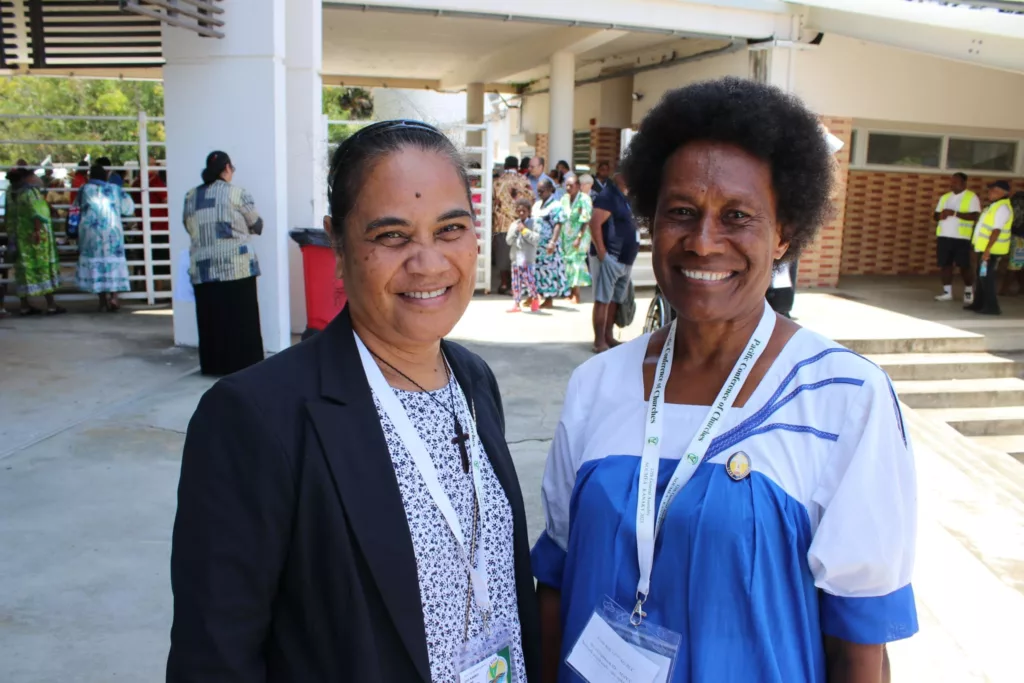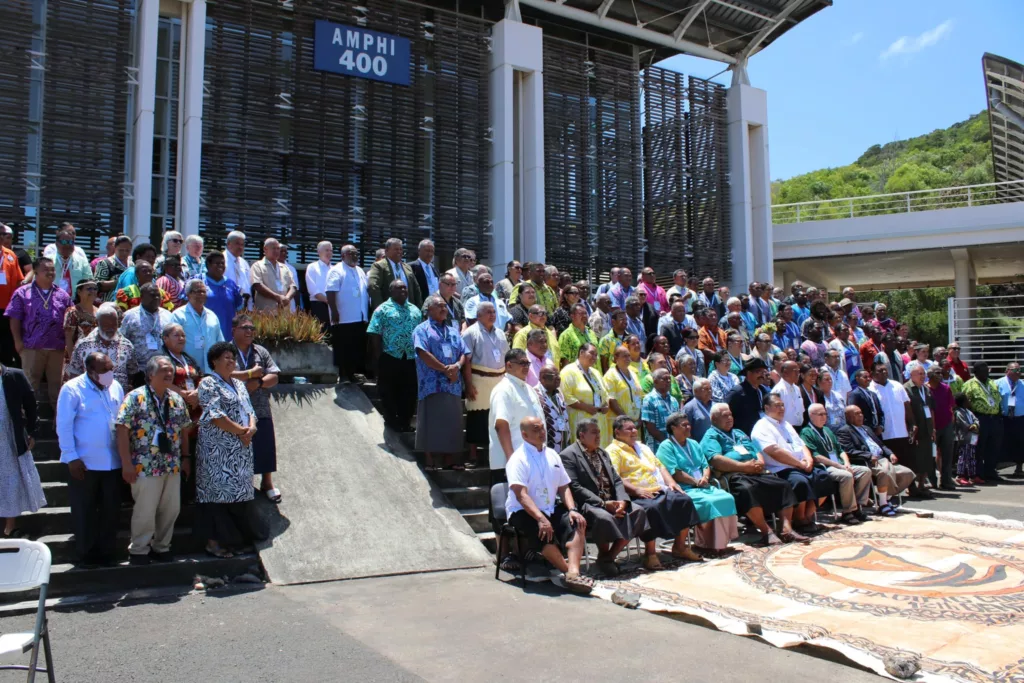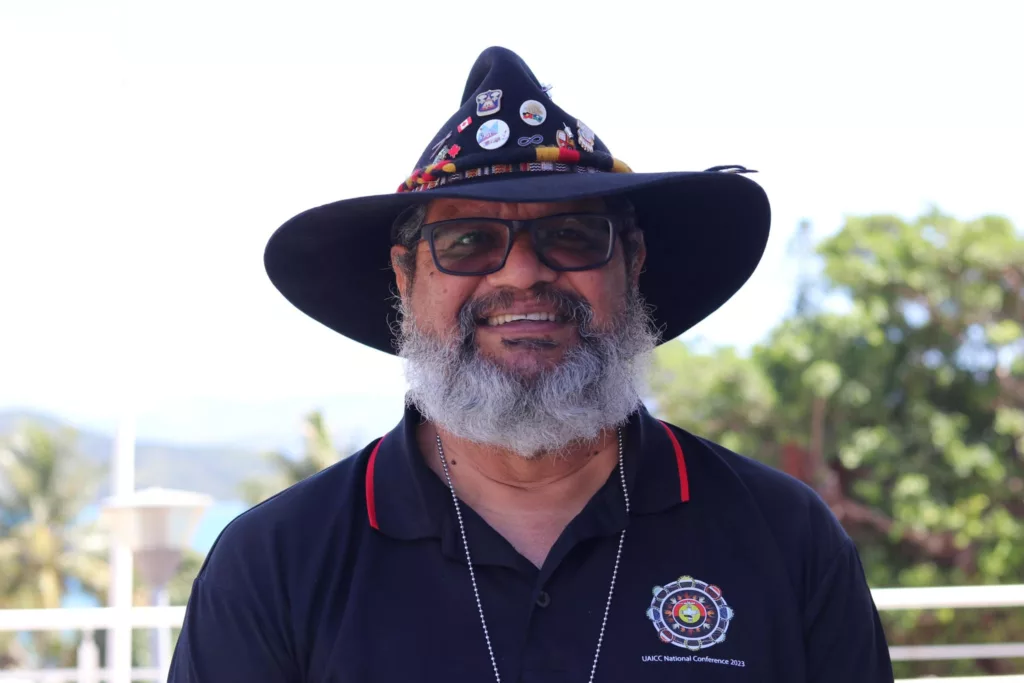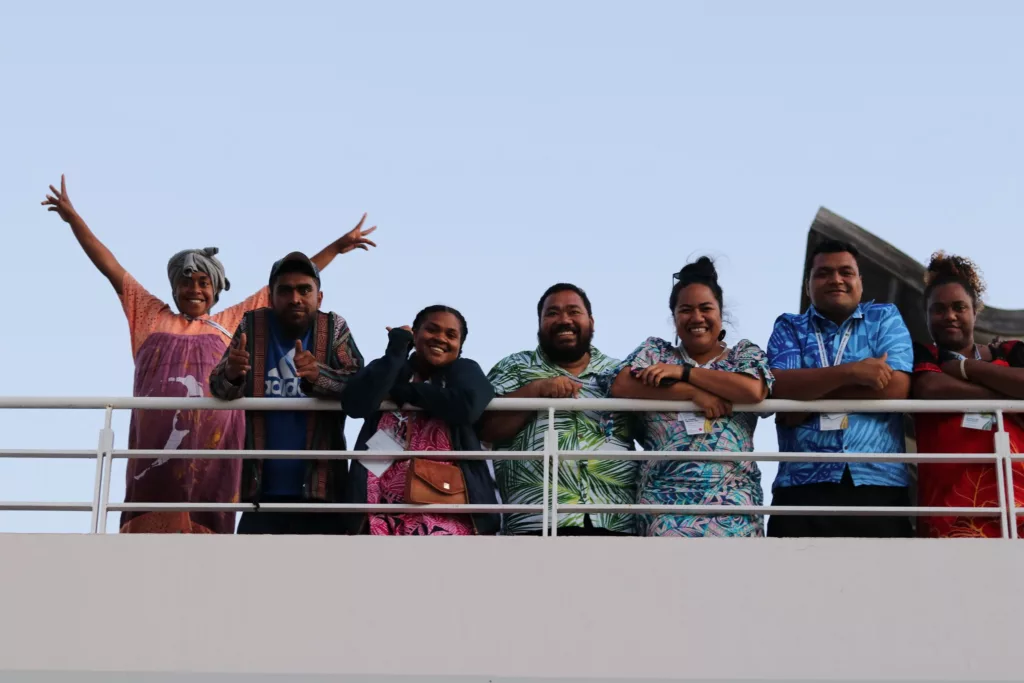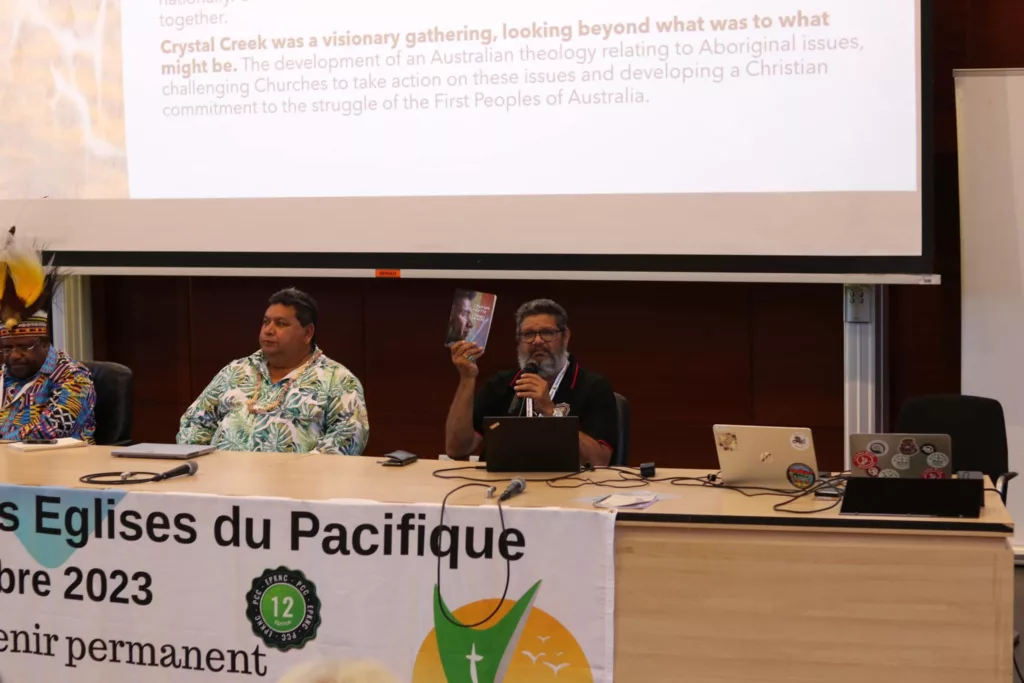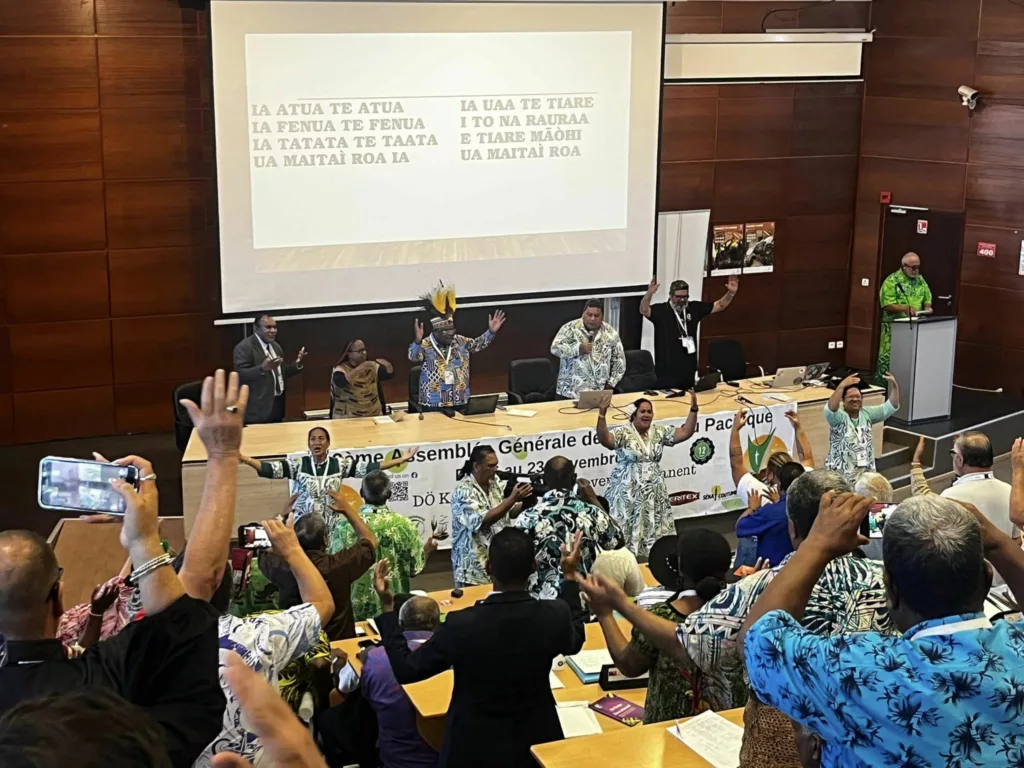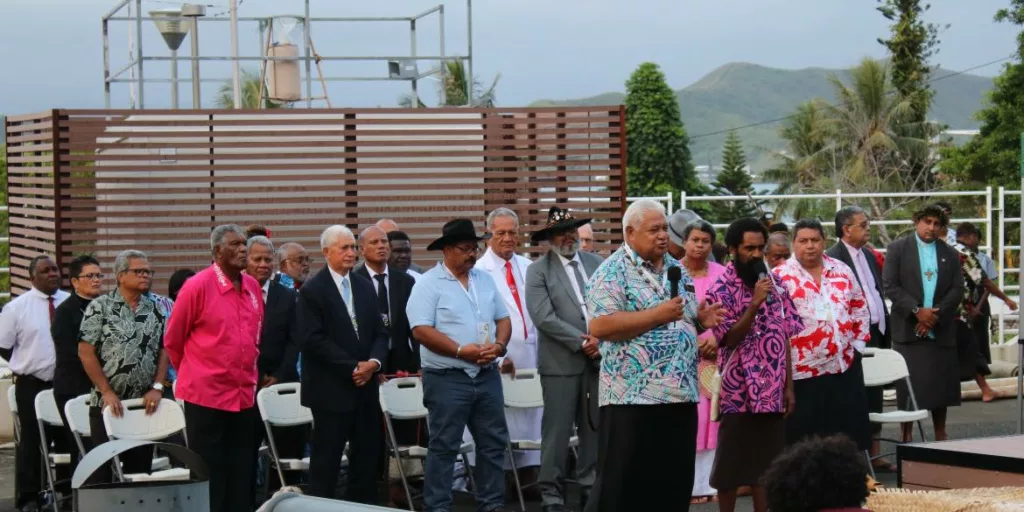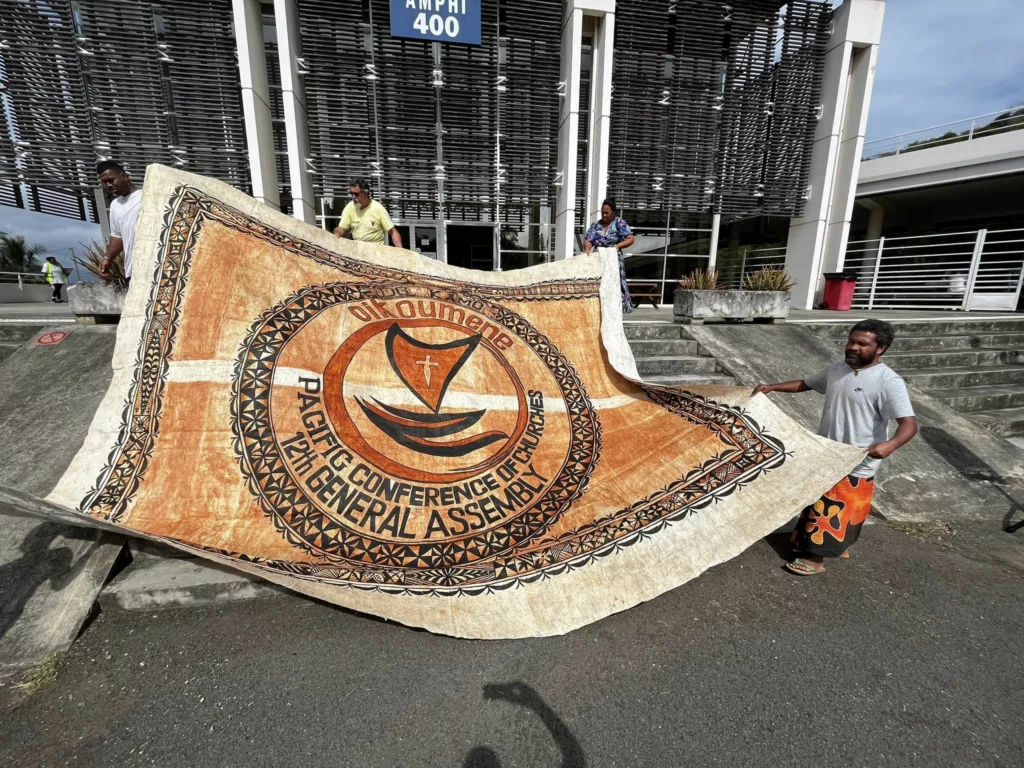Reflections on the Pacific Household of Faith
A report from the 12th General Assembly of the Pacific Conference of Churches
November 27, 2023
By Rev Lindsay Cullen, Assembly Associate General Secretary
From 16-23 November I had the privilege of attending the 12th Assembly of the Pacific Conference of Churches in Nouméa, New Caledonia. This meeting involved delegates from around 30 member churches as well as four prospective members and several visitor churches or organisations. The UCA was able to send six delegates as well as other visitors. As well as myself, the Uniting Church contingent included Rev Mark Kickett and Sean Weetra from the Uniting Aboriginal and Islander Christian Congress (UAICC), Rev Charissa Suli (and her daughter Latu), Rev Dr Seforosa Carroll (and her husband Ralph) and Rev Dr Peter Walker.
“At best, we are people of collaboration not competition, of community not individualism, of hospitality not hostility. As such we need to be heard clearly beyond our region.”
Subscribe to our newsletter
If you want to get the latest news from the Uniting Church in Australia then subscribe to our weekly newsletter delivered to your inbox.
The theme of the Conference, Do Kamo comes from the language of the indigenous Kanaky people of New Caledonia who hosted the Assembly. It conveys the sense of transformation into our authentic selves — as the 12th Assembly logo put it, “Christ Transform Us into your New Humanity!” Each day, different themes explored elements of this transformation – Ecumenical Fellowship, Self-determination, Ecological Stewardship and Child Protection and Empowerment.
In particular, the theme of self-determination came through strongly in many parts of the program. For two days prior to the opening of the Assembly, delegates were able to attend a number of different Pre-Assembly gatherings. For myself, this involved attending a two-day workshop run by the South Pacific Association of Theological Schools (SPATS). The first day of the workshop involved several talks about the values and approaches of a Pasifika theologies. In addition there was a stimulating talk by Peter Walker, Principal of United Theological College in the Synod of NSW/ACT, on future directions in Theological Education. The idea that Pacific communities need to move ‘beyond the eurocentric’ perception was a key theme reported from the SPATS gathering back to the whole Assembly later in the week.
For some nations represented at the Assembly, the struggle is in ‘decolonising’ minds and systems and living into a sense of indigenous identity. For other attendees, they are still being ruled by colonial powers and are part of ongoing discussions, debates and advocacy for self-determination in their own lands. This is the situation of the Kanaky people and delegates from the local church spoke eloquently and movingly about the privilege of hosting the Assembly and the sense of others standing in solidarity with their struggle for independence.
This sense of solidarity was regularly reinforced by repeated references to the ‘Pasifika Household’ or the ‘Pacific Household of Faith’. It became clear that this image of the household serves not only to reinforce a sense of relationship and of ‘family’ but is also a reminder of the rhythms and wisdom of the traditional household and of the indigenous ways of knowing which are fundamental to the type of transformation envisaged by the theme of the Assembly.
Another key metaphor throughout the meeting was of everyone belonging to the ‘blue pacific continent’. As I reflected on this, I thought that while this might resonate for some Australians, many other Australians, including indigenous communities, live far from the sea or on coastlines which are part of a different ocean from the Pacific. This seemed to me to be somewhat symbolic of our presence as a part of the PCC. While Australia sits on the edge of the same region as the Pacific Islands, we do so as a society shaped by colonialism and having been a colonial power in the region ourselves. I came away enormously grateful for the invitation to listen and to learn from the perspectives of the island nations of the Pacific, to hear of the ongoing struggle for self-determination, for freedom from the ‘soft colonialism’ still exercised by Western nations and the importance of forging new and indigenous theologies. It confirmed for me the UCA’s strong commitment to covenant and abiding advocacy for the call for truth-telling, treaty and voice in our own context and in our relationship with First peoples.
In a stirring Keynote Address on the first day of the Assembly, Archbishop Emeritus Dr. Winston Halapua, Anglican Diocese of Polynesia, said, “At best, we are people of collaboration not competition, of community not individualism, of hospitality not hostility. As such we need to be heard clearly beyond our region.” It was a pleasure for me to be in attendance at the PCC Assembly, and to hear clearly the wisdom of the Pacific through all the speakers, workshops and personal interactions I was able to enjoy.
Read the outcome statement from the Assembly
Follow more news from the General Assembly on the UnitingWorld Facebook page
Images from: UnitingWorld and Lindsay Cullen
Related news
UAICC national leadership
UAICC National Leadership announcementThe Uniting Aboriginal and Islander Christian Congress (UAICC) has elected Rev Mark Kickett as its National Chair. Rev Kickett has led Congress as the Interim Chair for the past three years and prior to this was serving with UAICC in South Australia. Rev Kickett said he was looking forward…
Paels 2023
Pacific Australian Emerging Leaders Summit 2023 Emerging leaders meet with the nation’s decision-makers to advocate for justiceBy Raúl SugunananthanLast week, the Pacific Australian Emerging Leaders Summit (PAELS) met for a second year running. The Summit gathered 68 young people from the Pacific Islands, the Pacific diaspora living in Australia, Aboriginal and Torres Straight Islander communities,…
Raise the Age week of action
Raise the Age Support the campaign to Raise the Age of criminal responsibility to keep children in schools and communitiesAustralia imprisons children as young as 10, one of the youngest ages of criminal responsibility in the world. Yet overwhelming evidence from health experts, social workers, Indigenous leaders, legal experts and human rights organisations show that…
Walk for Yes
This weekend thousands of supporters for a ‘yes’ vote in the referendum will “Walk for Yes” in events across the country to show there is wide and deep support for a First Nations Voice. The Uniting Church supports the Voice as an opportunity to celebrate the First Peoples of Australia in our…
National weekend of prayer, reflection and meditation
Communities of faith all over the country are invited to participate in a National Weekend of Prayer, Reflection and Meditation from 8-10 September to reflect on and pray for unity and hope in the lead-up to the Voice referendum.“This is an opportunity for us to open your hearts again to what is…
Referendum date announced
Referendum date announced Now is the time to join others in actions to support a Yes to healing and hope. The Uniting Church in Australia welcomes the announcement of 14 October as the date for the referendum on an Aboriginal and Torres Strait Islander Voice. Uniting Aboriginal and Islander Christian Congress National Interim Chair…
Taking action for the Voice
Taking action for the Voice Four ways you can support a Yes vote in the Referendum In the Meanjin oration delivered on Monday night, Indigenous leader Noel Pearson spoke about the long and arduous pathway toward recognition for Aboriginal and Torres Strait Islander peoples that has led to the referendum. But at this critical…
NATSI Children's Day 2023
This Friday 4 August is National Aboriginal and Torres Strait Islander Children’s Day – a celebration of the strengths and culture of First Nations children. This year’s theme “Little Voices, Loud Futures”, acknowledges that a First Nations Voice would amplify the work being done to ensure First Nations children…

